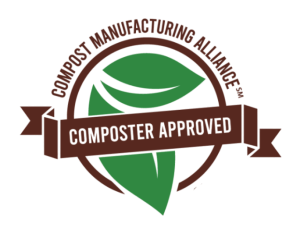By Susan Thoman
Certified compostable product options can significantly drive increases in food waste diversion within large venues and events when employed properly and within a well- developed system of procurement, education, and collection. However, more compost manufacturers are refusing loads from venues due to the overall contamination of non-compostable look-alikes, a lack of scrutiny in procurement policies, and, in many cases, underdeveloped program training, guidance, policies and consistency.
Compost manufacturers have invested significantly in the land, processes, equipment, staff, permits, compliance, product sales, and facilities required to make composting a reality in many cities. As time goes on, those costs are increasing with more regulation, more demands to put more volume through their facilities, permit related technology changes and updates, not to mention the current overall inflation and cost of fuel for equipment and machinery. In many cases, a compost manufacturer’s efforts, and the cities and haulers that work with them, have provided the greatest impact in landfill waste diversion within the last twenty years. Cities and states with strong and effective policies can move a 10% recycling rate to 30% by incorporating organics processing services (curbside yard waste/food waste, and source separated commercial organics). The investment compost manufacturers make, along with the other solid waste infrastructure, is vital to program initiation and success.
Yet, compost facility owners and operators have been talking about the issues with contamination related to food scrap composting for over a decade, and the compost industry needs commensurate investment upstream to ensure public event composting can include certified compostables long-term. Having the proper systems and policies place to ensure that facilities collecting food + compostables have:
- Strict vendor contracts that specify the ONLY certified compostable SKUs accepted by the compost facility in areas where compost collection bins are employed
- A relentless and ongoing educational plan that utilizes all available systems, tools, and training for continuous improvement among staff, the public, concessionaires, facilities and the hauler at ALL points in the process
- Regular and disciplined waste audits to measure continuous improvement, with staff trained to know what “the right way” looks like (product color marking helps this process!)
CMA welcomes the support, expertise and ideas from solid waste and supply chain leaders on what investments can be made upstream to ensure composting remains a viable option for compostables in public collection venues. If you would like to schedule a call to discuss or share your ideas, please send a note to info@composterapproved.com. We are listening, and happy to host some monthly informal group chats on the subject!
